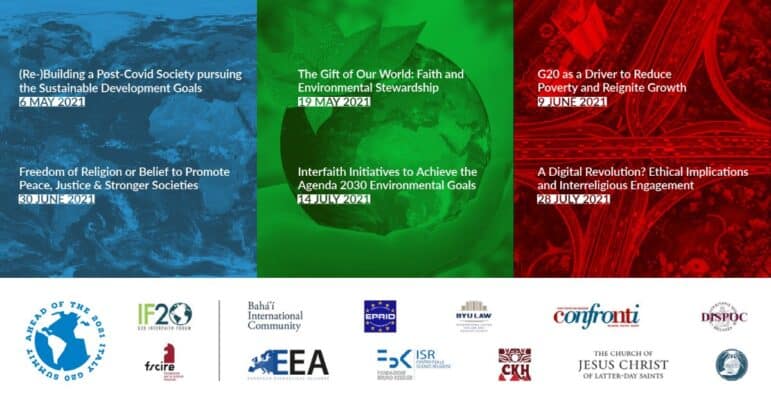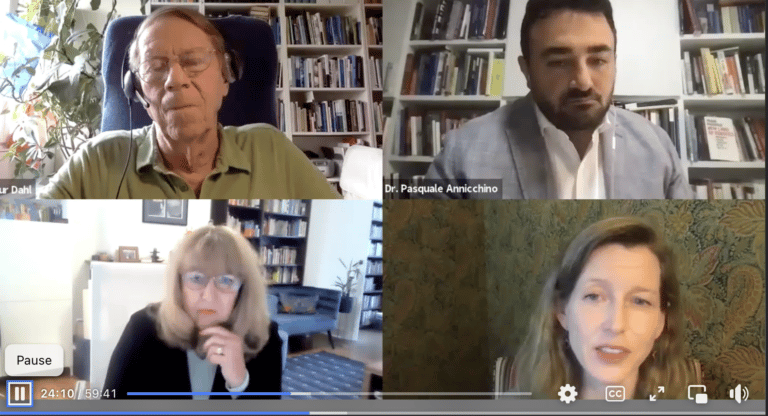
Gore Speaks about Faith Communities, Values, and Development at G20 Interfaith Forum
On Wednesday, July 14, Karenna Gore, executive director of the Center for Earth Ethics, was a panelist at a webinar, “Interfaith Initiatives to Achieve the Agenda 2030 Environmental Goals,” sponsored by the G20 Interfaith Forum. The other panelists were Arthur Dahl, president of the International Environment Forum, and Astrid Shomaker, director for global sustainable development in the European Commission’s Directorate General for Environment. Pasquale Annicchino of the Bruno Kessler Foundation moderated the discussion.
“Everyone is experiencing climate change,” Gore said. “It is important to acknowledge inequities and those who are suffering and dying right now.”
She emphasized two global megatrends in play: depletion, including the deforestation of the Amazon, and pollution, most importantly the rise in greenhouse gas emissions. “This is about more than data and science,” she said. “It’s about belief systems and values.” Even the UN’s Sustainable Development Goals, Gore noted, have sometimes been used “to justify the continuation and even expansion of fossil fuels.”
“Money is often confused with virtue,” Gore said. But she sees faith communities playing three main roles in reframing the conversation. They can be prophetic, in the sense of “telling the truth” about climate and sustainability during a worldwide “crisis of fact and knowledge.” They can be pastoral, being there in communities, caring for those who are suffering, and helping “shepherd people into new ways of being in ecological balance.” And they can be practical, mobilizing their organizational and physical resources.
In his remarks, Dahl noted the history of religious groups being engaged with environmental issues going back to the 1970s. He emphasized the challenges in translating global goals to local situations and in measuring development according to values, not GDP. “How do you measure progress on values?” he asked.
Shomaker offered a policy perspective, noting that her remarks came on the same day that the EU announced its ambitious “Fit at 55” legislative agenda to cut emission of greenhouse gases by 55% and make Europe “the first climate-neutral continent.” The EU is embracing “the people’s agenda,” she said, which means acting with “a sense of urgency” about pollution. It also means embracing equity, not only equity within society (including respecting women’s knowledge and roles) but also intergenerational equity, recognizing that this generation has a responsibility to generations to come.
“We’re all in this together,” Annicchino concluded. “Nobody is saved alone.”
Wednesday’s webinar was sponsored by the G20 Interfaith Forum, a network of religiously linked institutions and initiatives that engage on global agendas, especially the UN’s Sustainable Development Goals. It was the fifth session of the group’s “Ahead of the 2021 Italy G20 Summit” series.

